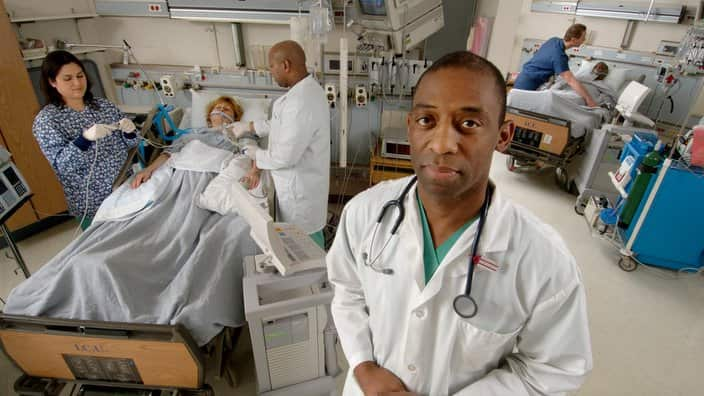1. One in six Australians will suffer from stroke at some point in their lifetime

Source: Getty Images
2. One in three people die within a year of having a stroke

Source: EPA/Michael Reynolds
3. Stroke kills more women than breast cancer and more men than prostate cancer

Source: Getty Images
4. 20 per cent of people who experience a stroke are under the age of 55

Source: Getty Images
5. Men are more likely to suffer a stroke at a younger age

Doctors With Patient on Stretcher Source: AAP
6. Blood pressure is one of the most important known risk factors for stroke
High blood pressure is when your blood pressure is over 140/90. This is known as hypertension. Normal blood pressure is around 120/80.Image
7. The FAST test is an easy way to recognise and remember the signs of stroke
Using the FAST test involves asking these simple questions: Face - Check their face. Has their mouth drooped? Arm - Can they lift both arms? Speech - Is their speech slurred? Do they understand you? Time - Time is critical. If you see any of these signs, call 000 straight away.

Source: Courtesy of Stroke Foundation
8. The signs of stroke may occur alone or in combination

Stroke brain scans Source: Monty Rakusen/Getty Images
9. Some treatments for stroke must be given within 4.5 hours of the stroke starting or presentation of stroke symptoms

Parked Ambulances outside the St Vincents and Mercy Hospital, in Melbourne, Monday, Dec. 1, 2014. Source: AAP
10. Emergency medical treatment is crucial
If you are having a stroke, emergency medical treatment could save your life and can reduce the likelihood of permanent brain damage. Only a doctor can decide whether you are having or have had a stroke.

The emergency department at Hornsby Ku-Ring-Gai Hospital in Sydney, Sunday, May 15, 2016. (AAP Image/Amanda Heppel) NO ARCHIVING Source: AAP
